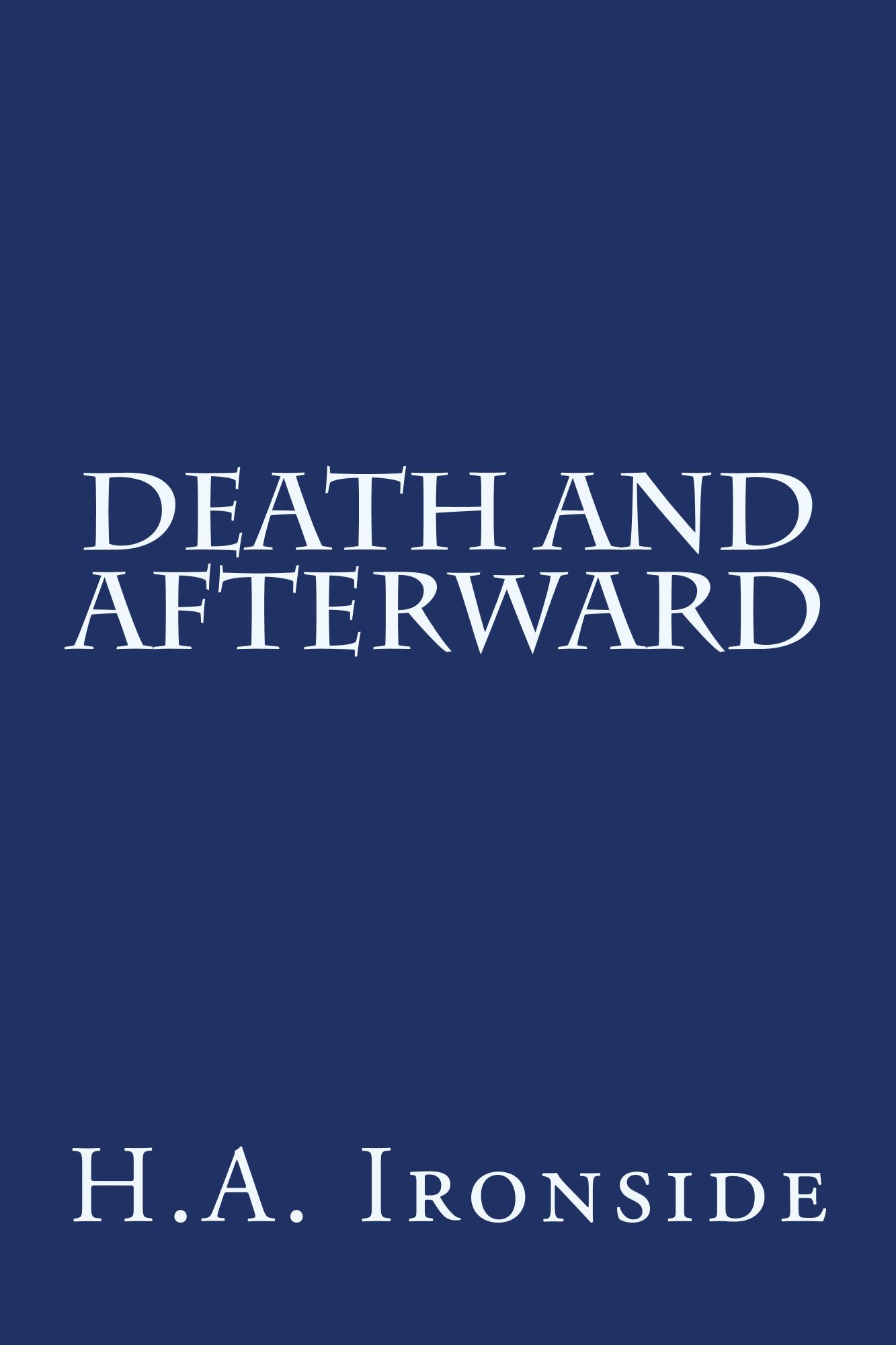Description
DEATH AND AFTERWARD
by
H. A. Ironside
2015
What Happens to the Christian after Death?. 3
What Happens to the Christless after Death?. 15
What Happens to the Christian after Death?
In attempting to answer this question concerning which there seems to be much perplexity in the minds of many sincere believers, we need only consider 2 Corinthians 4:16-5:10.
For which cause we faint not; but though our outward man perish, yet the inward man is renewed day by day. For our light affliction, which is but for a moment, worketh for us a far more exceeding and eternal weight of glory; While we look not at the things which are seen, but at the things which are not seen: for the things which are seen are temporal; but the things which are not seen are eternal.
For we know that if our earthly house of this tabernacle were dissolved, we have a building of God, an house not made with hands, eternal in the heavens. For in this we groan, earnestly desiring to be clothed upon with our house which is from heaven: If so be that being clothed we shall not be found naked. For we that are in this tabernacle do groan, being burdened: not for that we would be unclothed, but clothed upon, that mortality might be swallowed up of life. Now he that hath wrought us for the selfsame thing is God, who also hath given unto us the earnest of the Spirit.
Therefore we are always confident, knowing that, whilst we are at home in the body we are absent from the Lord: (For we walk by faith, not by sight:) We are confident. I say and willing rather to be absent from the body and to be present with the Lord. Wherefore we labour, that, whether present or absent, we may be accepted of him. For we must all appear before the judgment seat of Christ; that every one may receive the things done in his body, according to that he hath done, whether it be good or bad.
This passage abounds in striking contrasts. I want to point out more than a dozen. Doubtless a careful analysis would reveal others.
First, we have the “outward man” contrasted with the “inward man.” Notice this carefully. The outward man is the physical man; the inward man is the spiritual man. Materialists of all types deny the personality of the spiritual man, but verse 10 distinctly affirms it.
Second, “perish” is contrasted with “renewed.” The physical man wastes away. As soon as we begin to live we begin to die, but the inward man is renewed from day to day
Then in verse 17 we have three more decided contrasts: “light” is contrasted with “weight,” “affliction” with “glory” and that which is “for a moment” with that which is “eternal.” Affliction often seems to the tried and distressed saint to be heavy indeed and long-continued, but the spirit of God calls it “our light affliction which is but for a moment.” We realize this in all its blessedness when we see it in full contrast with the “far more exceeding and eternal weight of glory,” which is to be our portion throughout the ages to come.
The sixth contrast is in verse 18, where “the things which are seen” is put in apposition with “the things which are not seen.” The former are declared to be temporal and the latter eternal. This sixth contrast is of great importance in connection with the present discussion. It is often said, by the advocates of conditional immortality and other materialistic systems, that the word generally rendered “eternal” in the New Testament does not necessarily bear that meaning. But here we have this very word put in direct contrast with the word “temporal,” which clearly means that which has an end. Eternal therefore, must mean that which has no end. If we think of several other instances in which the same word is used we will perhaps realize more than ever the truthfulness and solemnity of this statement. We read of the eternal God, the eternal Spirit, eternal redemption, eternal inheritance; on the other hand, of eternal punishment and eternal judgment. Who, with any regard for the authority of scripture, would dare affirm that eternal means one thing when referred to what is good, and to deity itself, but quite another when it has to do with the punishment of the wicked?
The seventh and eighth contrasts are found in the first verse of chapter 5. There we have “our earthly house of this tabernacle” and side by side with it, “a building of God, a house not made with hands, eternal in the heavens.” The one may be “dissolved,” the other is “eternal.” Observe that this is the third time we have the word “eternal” used in this remarkable series. Once more it is in direct contrast with that which passes away or comes to an end. That which is temporal may be dissolved, but that which is eternal will never know dissolution.
We next have the contrast between being “unclothed,” which refers to death, and “clothed upon.” which is resurrection. Mortality will then be swallowed up in life.
The last three pairs of contrasts are found in verses 6-9, where we have, “at home in the body” in contrast with “absent from the body,” “by faith” contrasted with “by sight.” and “absent from the Lord” contrasted with “present with the Lord.”





Reviews
There are no reviews yet.